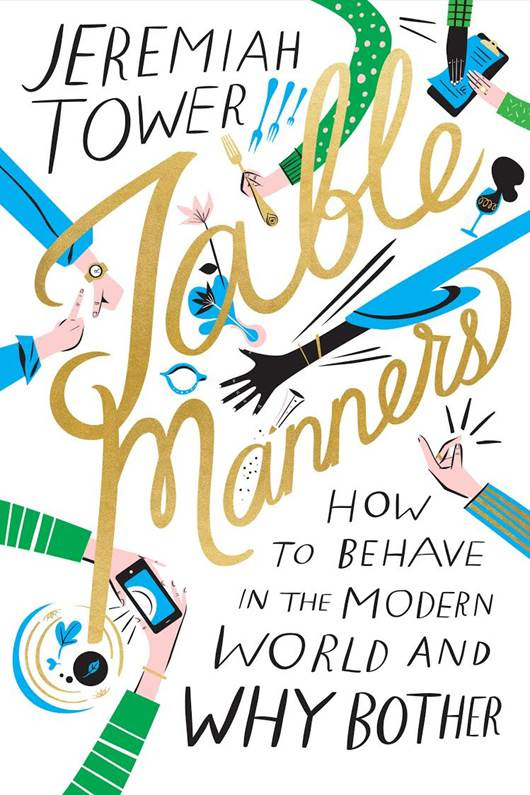These ripe white peaches, perhaps my favorite fruit, were placed in the center of the table at lunch. We were dining with friends at their castle in Umbria.
The lunch was quite formal given that there was some famous from Hollywood and one of the guests was the ex Sec. of the Treasury of the USA.
Since I adore white peaches, my whole attention to the lunch was on the centerpiece. Because there was no flatware at our places to suggest they were to be eaten and not just for show, my attention was diverted by my wondering when the peaches were to be served. And how.
Which memory reminded me of my book on manners that talks about situations like this.
Why bother? Why then I would have known that the peaches were to be served, and I could have been more relaxed and a better guest.
The answer to “why” is do table manners really matter? In his 1961 Tiffany’s Table Manners for Teenagers William Hoving says, “In this day of confused standards, manners are sometimes sadly neglected. This is especially true of table manners.”
I would go further and say if there are no table manners, there are no manners at all.
Still, once learned they should never become a rigid set of rules. Never, as Hoving says, “stilted, self-conscious, or artificial,” but forever adapting while never losing their purpose. The whole point of manners, especially table manners, is the opposite of pretension.
The Platinum Rule is do unto others as they would have you do.
When I opened Stars restaurant in San Francisco in 1984, I knew that manners would let me gain access into the circles of the wealthy and social elite of that community, to rally and enlist them as regular customers. Their shock at seeing that “a cook” knew how to behave amongst them produced enough curiosity that they were soon flocking to see what I had created.
Good table manners meant I was all right and, therefore, my business must be.
I picked up a copy of my book yesterday and started thumbing through it. Remembering that at the lunch everyone waited for the hosts to see what conversation it would be at that heavily governmental and Hollywood table. Which of the Volatile Triumvirate would be included or avoided?
From TM:
“When the conversation sags, there are always these three topics long considered taboo, often make for the most interesting conversations. But dive in at your own risk.
And also remembering that “A conversation is a dialogue, not a monologue.” —Truman Capote
Politics
It can be fascinating to discuss affairs of state—if you are sure that everyone has the manners to stay calm. If you’re at ease with your beliefs, let others be with theirs. And unless you are certain you are surrounded by others who like heated conversations, abort if things turn nasty. It’s a dinner not a debate; a time to learn, not to lecture.
Religion
As with politics, if you are content in your religious skin, let others be in theirs.
Sex
Sex is an acceptable subject when it is about other people, kind, funny, and spoken of with an air of astonishment.”
All that aside, the book talks a lot about food, drink, and how to throw a party.
More content below, including drinks, food and more tips on entertaining.










